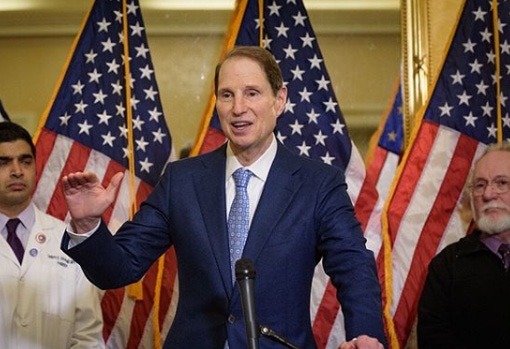The very public investigations by Senator Ron Wyden of Oregan have seemingly forced US telcos to back out of location-sharing partnerships with data brokers as privacy policies of the world’s largest companies continues to be questioned.
June 20, 2018

The very public investigations by Senator Ron Wyden of Oregan have seemingly forced US telcos to back out of location-sharing partnerships with data brokers as privacy policies of the world’s largest companies continues to be questioned.
The practice itself surrounds the selling of geo-location data from the telcos customers onto third parties, who in turn aggregate the data before reselling onto other organizations. While the concept of selling personal data, whether it is location, interests or professional information, is relatively common throughout the digital economy, the cloak and dagger means of conducting business here is starting to face greater levels of scrutiny.
The consumer facing platforms or businesses collecting the information in the first place have never been entirely honest with the user, meaning every revelation is treated as a scandal. As a result of the Senators investigation, Verizon, AT&T, Sprint and T-Mobile have all agreed to curb the practice (but not stop it), but, as is becoming common place, honesty and apologies only come after being caught. The level of deception is starting to become quite remarkable, and it does make you question what other skeletons are being hidden in the closet.
“After my investigation and follow-up reports revealed that middlemen are selling Americans’ location to the highest bidder without their consent, or making it available on insecure web portals, Verizon did the responsible thing and promptly announced it was cutting these companies off,” said Wyden. “In contrast, AT&T, T-Mobile, and Sprint seem content to continue to sell their customers’ private information to these shady middle men, Americans’ privacy be damned.”
While this might seem like a victory for the Senator, it should be worth noting the telcos have provided suitable wiggle room to continue selling the data. The dodgy brokers in question look to have been barred from working with the telcos, but this is by no means the end of the story, it is after all an opportunity to make money; no principle is too great or sacred to trump the potential of making money.
Verizon has stated it would continue to sell data to companies that would use it in-house, highlighting fraud detection or customer identification as examples (it is doing it to help the user after all), Sprint highlighted the good work it has done as well, while AT&T has said it believes there are no other example of unauthorized use of customer data. In its response to the Senator, T-Mobile said:
“The program provides our customers with valuable location-based services. Although the program is relatively small, it delivers numerous societal and consumer benefits, including through services like roadside assistance, medical emergency alert services, and bank fraud prevention. Because other national carriers provide similar programs, these valuable services are available to the vast majority of U.S. mobile wireless consumers.”
T-Mobile also confirmed it would tighten up the procedures to make sure the data is being used ethically, responsibly and legally, however the messages all seem to be the same; we’re not doing this to make money for ourselves, it is for the benefit of the consumer.
Privacy is a big question being asked by both consumers and politicians right now, and it would not surprise us if this is just the tip of the iceberg. Several companies have been caught out for bad practice or misleading practices, but we suspect there might be a bigger scandal out there, hiding in the dark corners of the web.
About the Author(s)
You May Also Like








.png?width=300&auto=webp&quality=80&disable=upscale)


_1.jpg?width=300&auto=webp&quality=80&disable=upscale)


.png?width=800&auto=webp&quality=80&disable=upscale)